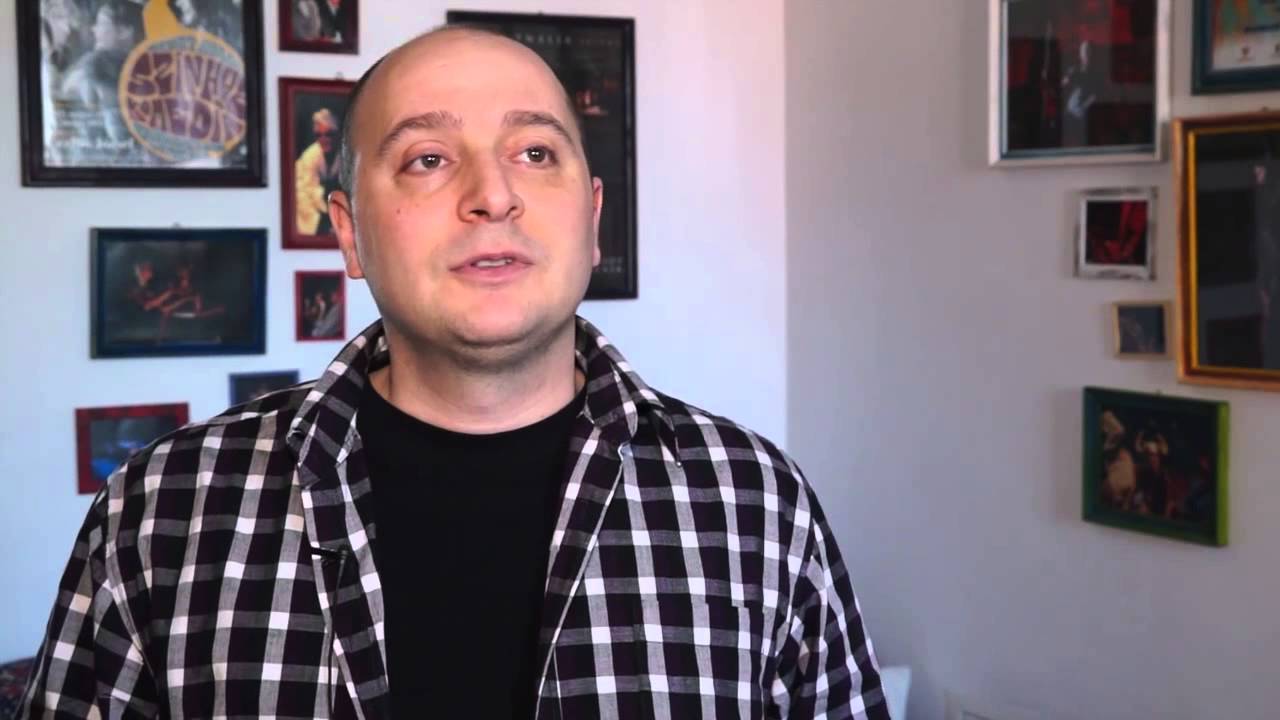o inscenácii
Since 1990 we keep coming across people without home in Slovakia. Every city has its places that are linked to the presence of the homeless. We find among them people with different destinies and stories. Yet many of them have gone through social exclusion before they ended up on the street. The circumstances that led to that can be multiple at once. Some cases also warn that anyone of us can fall to the ground, regardless our social status, educational attainment or family background.
The authors of the production Reverse used the phenomenon of homelessness as an instrument to portrait the theme of the “disappearing” Hungarian minority in Slovakia. The theme is first accentuated by the master by István Kerékgyártó (adapted by the author to the Slovak and/r Czechoslovak context). It is a story that develops in reverse, from the passing of the lead character (the homeless Zsolt Vidra) all the way to his conception the retrospective narrative may come across as a formal tool. Yet the authors managed to keep the audience in suspense and constantly keep surprising.
The play Reverse is fi with social outcasts. The story is fi with characters of socially maladapted, cheats, nouveau riche, convicts, and prostitutes. When the police appear on stage, their turn out to me the major tinkers. When the authors show us the pathologists, they are the major cynics. When a daughter appears in the story, she is a girl without deeper compassion. The production shows us apathy, emotional barrenness and vulgarity – all that can be felt in our society and comes to the surface along with topics of concerns (the Roma, immigrants, people with impediments, etc.).
Only seldom we come across productions on Slovak stages that address social issues. Yet the productions that use social themes to highlight other topics are even more infrequent. Di- rector József Czajlik together with dramaturge Miklós Forgács created a production that can be subject to wider discussion. On the one hand about the growing mass of people on the margin of social exclusion (statistics suggest 700,000 Slovaks on the brink of poverty) and, on the other hand, about the diminishing ethnic minority (62,000 fewer people identified with Hungarian ethnicity in 2011 than in 2001). If theatre is to be seen as the tribune of the society, the production team of the Reverse has done an important job in this respect.
Iveta Ditte Jurčová, Michal Ditte
“The life of Zsolt Vidra from death to birth. Life of an ordinary man – born schlemiel. A man who can be forced to eat dog granules. Many of whom his only daughter is ashamed. Man who does dirty job (and gets fired) without getting his share. Man whose parents were or are in jail or mental asylum. Man whose Christmas is no Christmas. Man whose first love ended with a stab forever. Man whose birth was no anticipated with joy. Man who wanted to be born against all efforts to have an abortion. Man who was predicted to have a great life.
The great life between 1953 and 2013. The undesired pregnancy and abortion efforts are at the beginning of the grand life. At the end lays a naked body of a homeless man. All that takes place in the play by István Kerékgyártó in the production by the Košice-based Thália Theatre.”
Like reversing before (Zsuzsanna Kozsár, www.rovart.com)
“The dramatic text is demanding, filled with dynamic dialogues, irony. Yet the actors of the Košice theatre handled it with excellence. Since it is a drama company acting in Hungarian language, their performance at the Festival is a pleasant refreshment and a change. They bring to stage a different, diverse temperament. They made a plastic portrait of different types of character (homeless people, a nouveau rich from Pereš, prostitutes). Their evocative, realistic acting has brought quick multilayered cuts. In the commentaries one could event spot Brechtian detachment.”
Reverse – a return to the past [Spiatočka – návrat do minu- losti] (Martina Borodovčáková, www.mloki.sk)
creators
directed by József Czajlik
dramaturgy: Miklós Forgács scéna / set design: Viola Fodor
costumes: Katalin Őry
music: Róbert Lakatos
movement: Attila Bocsárszky, Mihály Richtarcsík
cast: Tamás Gál, Lívia Varga, Katalin Latócky, Henrietta Rab, Lilla Dégner, Andrea Szoták, Géza Benkő, Szilárd Petrik, Attila Bocsárszky, Máté Madarász, Erik Ollé, Mihály Richtarcsík
director

József Czajlik (1975) has been actor at the Thália Theatre in Košice and the Jókai Theatre in Komárno since 1993. In 2002 he graduated in theatre directing and dramaturgy from the Academy of Performing Arts in Bratislava, receiving the Tatra Bank Foundation prize for the best dissertation, having already completed three successful directorial projects.
Ostrovsky’s Bride without a Dowry has toured university festivals in Prague, Pécs and Amsterdam where it received a series of awards (best production, best actor, and best di- rector), Schaffer’s Amadeus (2001 Divadelná Nitra) received the festival Grand Prix for Hungarian Expatriate Theatres and Special Award for best director at the Festival of Studio Theatres in Budapest. In 2006 he founded with his col- leagues the Epopteia theatre association that worked with other Hungarian-speaking theatres. He has regular guest appearances in Slovakia and abroad. In Poland he directed the History of Communism (the W. Bogusławski Theatre, Kalisz) and Lorca’s Blood Wedding at the Serbian National Theatre in Novi sad. Since 2011 he serves as director of the Thália Theatre in Košice where he faciliates a change in the direction of its artistic production.
Materials available
Video of the production: no
Script of the production: SK
If you are interested in these materials, write to archivy@nitrafest.sk
